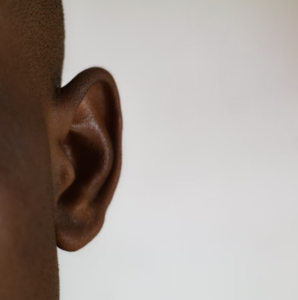Hearing Doctors: Who They Are and How They Can Help You
Statistics from the National Institute on Deafness and Other Communication Disorders reveal that an estimated 15% of American adults aged 18 years and up have reported experiencing hearing complications. If you fall within this threshold and are uncertain about which type of hearing doctor can best treat your hearing loss, rest assured that you have options. At Associated Hearing Professionals, our team of experienced audiologists will work with you each step of the way to determine a plan of action to get your hearing back on track.
What Is an Audiologist?
Often confused with ENT doctors, audiologists are skilled hearing professionals (that hold a doctorate or master’s degree) who can help diagnose, treat, and prevent hearing and balance disorders in patients. While audiologists and ENT doctors may work together to treat various patient concerns, the two specialists target different areas of the body. Whereas an ENT doctor provides treatment for a wide array of medical conditions affecting the ears, nose, and throat, an audiologist specifically looks at hearing loss and spatial imbalance issues caused by the inner ear.
Common roles and responsibilities of an audiologist
In addition to diagnosing, treating, and monitoring hearing loss, audiologists may specialize in treating people’s sense of balance and spatial orientation influenced by the vestibular system within your ear. As such, audiologists can treat auditory disorders such as autoimmune, noise, and stroke-related hearing losses, among others, as well as vestibular disorders ranging from age-related dizziness and imbalance to cholesteatoma, an abnormal skin growth in the ear that can damage bones.
What Does an Audiologist Do?
While audiologists do not perform surgery or prescribe medications, they do offer remedies for hearing and balance issues affecting patients of all ages. After conducting a thorough hearing test, an audiologist may recommend the following treatments for these conditions:
- Hearing aids
- Assisted listening devices
- Cochlear implants
- Vestibular rehabilitation
Reasons to Visit an Audiologist
The Centers for Disease Control and Prevention recommends early treatment of hearing complications, as it can be critical in preventing further hearing loss or additional health complications, like memory impairment, cardiovascular involvement, diabetes, and balance issues, among others. Hearing problems can be temporary or permanent, but it is advisable that you consult with an audiologist after experiencing any of the following symptoms:
- Ringing in your ears (tinnitus)
- If you notice changes in your hearing
- When you experience balance problems
- Difficulty hearing when in loud environments
Choosing the right hearing doctor
When locating the right hearing healthcare professional for your unique circumstance, it’s important to keep a few different things in mind. For example, you may want to follow the recommendations of your general physicians and loved ones, but you’ll also want to consider which hearing professionals specialize in areas relating to your specific complaints and symptoms. In addition, the qualifications of different types of ear doctors might distinguish whether you seek out an audiologist or an ENT.
Ready to Meet With a Hearing Doctor?
If you suspect any damage to your hearing and are ready to restore your sense of sound and balance, our trained audiologists at Associated Hearing Professionals can help diagnose and treat all types of hearing loss. We’ll start with a comprehensive hearing test to gauge your level of hearing and determine a course of action that’s right for you. Before you see us for an appointment, you’ll want to make sure you make the following preparations:
- Compile health and lifestyle information that may aid in your diagnosis or treatment
- Write down any questions you may have
FAQs
Is an audiologist a medical doctor?
While audiologists often hold a Doctor of Audiology (AuD), these hearing specialists are not considered to be physicians. Instead, audiologists are doctors in the sense that they hold a doctorate degree, but they do not undergo full medical training. Though audiologists are not medical doctors, they can specialize in specific areas, such as pediatric audiology, in addition to obtaining their doctorate.
Does an audiologist clean ears?
Yes, audiologists are specialized in cleaning ears. When you visit an audiologist for an ear cleaning, the appropriate approach to remove any wax buildup will be determined based on your results of an initial ear exam. Depending on the severity of the blockage, an audiologist may opt to remove the wax by cleaning the ear canal with manual instruments, ear irrigation techniques, or micro-suction devices.
Can I test my own hearing?
There are a number of quick online hearing tests that can help you determine if you are experiencing hearing loss. At Associated Hearing Professionals, we offer an online 10-question checklist that you can take at home prior to scheduling an appointment with an audiologist.
Visit the Audiologists at Associated Hearing Professionals
Numerous factors such as age, exposure to noise, infections, and medications have contributed to the rise in hearing complications. At Associated Hearing Professionals, we have state-of-the-art instruments that help improve the quality of life through better hearing. Contact us and schedule your appointment today with our trained hearing doctors to get the most comprehensive hearing healthcare services.

